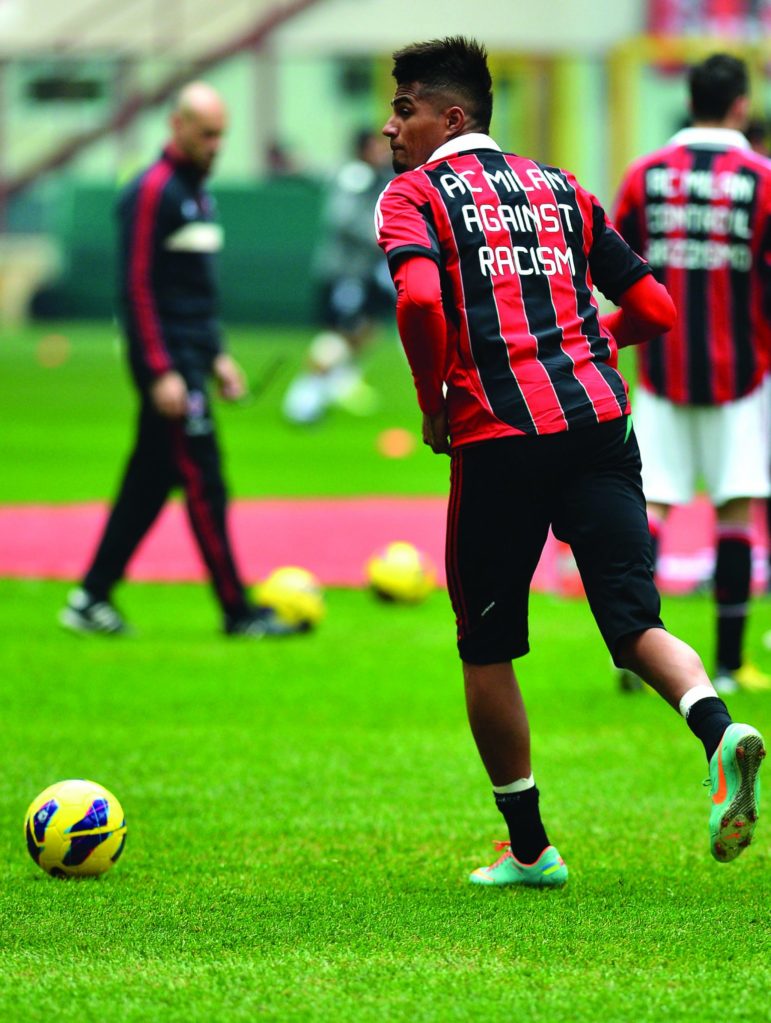No one and nothing can prepare you for what you will face in the world of professional football. Nobody warns you of the ugly side; the side that none of my team mates in Africa cautioned me about.
I started my professional football career in Belgium in late 1985. It was a giant leap from the tiny township of Mufulira, in northern Zambia, to the sophisticated streets of Brugge, the so-called ‘Venice of the north’.
I had achieved a lot in the Zambian league with my team Mufulira Wanderers. I won Zambian Footballer of the Year in 1984 and my career in the national team career was blossoming. The offer to go to Europe to ply my trade was like a dream come true. I felt privileged to have been given a chance to prove myself on the European stage.
I was strong, self-confident and determined to succeed.
In those days, black people were rare in Brugge. In fact, there were only three black players in the two premier league teams, Cercle Brugge and Club Brugge.
There were times at training when one of my team mates would swear they had seen me in town that day. When I told them that I had not left my home the whole day, they would shrug it off by saying: “You all look alike”. At first, it used to get me upset, but later I learnt to laugh about it.
To get to training I needed to take two buses and then walk about 150 meters to the ground, even in the harshest of weather conditions. Initially, all the players driving to training would drive past without as much as a hoot or a glance. As I started to make more impact in training and challenged for a place in the team, they would stop and offer me a lift. I never accepted a lift and continued walking until I bought my own car.
I conquered these examples of belittlement by strengthening my determination to prove to all that I could rise above them and prove my worth as an equal.
When I finally made it to the first team, I got the shock of my life. I was booed by the opposition fans during the warm-up. This was something I had never experienced before. The opposition fans hostility sometimes went on for the entire match.
Through concentration and sheer determination I started ignoring it.
The chants and slurs were part of the game in the late 1980s and, as I began to make a name for myself in the league, I paid less and less attention. This, coupled with resolve and fortitude, helped my mind to shut all of it out. All I wanted was to be respected for my skill, not insulted for the color of my skin. It made me more resolute to succeed.
It needs to be known that making it as a professional footballer does not happen by luck and talent alone. It takes strenuous practice, extreme discipline, unflinching determination, untold sacrifice, laser-sharp focus and dedicated commitment. Players deserve to be respected for this.
It has always been a sad state of affairs when a malevolent minority try to influence the majority. The racist chants in stands have always come from a small portion of the crowd—a small portion so intent on their team winning they would do anything to see the opposition losing, even stooping low to try to degrade them. They find a difference they can pick at and take it to the extreme. I am not sure if walking off the pitch as a reaction to this, as was the case with Kevin-Prince Boateng of A.C. Milan recently, achieves anything but victory for the offending party.
Many football players have been victims at one time or another of crude gestures, monkey noises and booing among other attacks. Players need to soldier on. We are all trying to make it in life.
Most fans around the world attend football games to enjoy the match and encourage their teams. The love outweighs the hate.
FIFA have made their position very clear in article 3 of their statutes: “Discrimination of any kind against a country, private person or group of people on account of ethnic origin, gender, language, religion, politics or any other reason is strictly prohibited and punishable by suspension or expulsion.”
My opinion is that, to try to eradicate this scourge, the authorities need to manage it better. The onus should be on the clubs and national football associations to empower their safety personnel to identify the offenders and act swiftly to remove them from the stadium. They need to be named and shamed and banned from ever attending another game. Doing so would make them think twice before shouting obscenities. If this cannot be done then we need to resort to hitting where it hurts most, by deducting points. I would support such a cause.
Unfortunately, discrimination is alive in our society, practised by a minority convinced that they are superior by one virtue or another. It does not mean we have to tolerate it. We, as the majority, need to kick it out. It is a rare disease that needs to be wiped out. As players, we need to stand tall and be strong, be immune to such pettiness. As fans we need to expose the perpetrators and stop them from infecting others with this disease.
Football is meant to conquer discrimination and adhere to the notion of fair play. Here we are in 2013, 28 years after my European debut, still talking about this scourge. How can we still call it the beautiful game?
